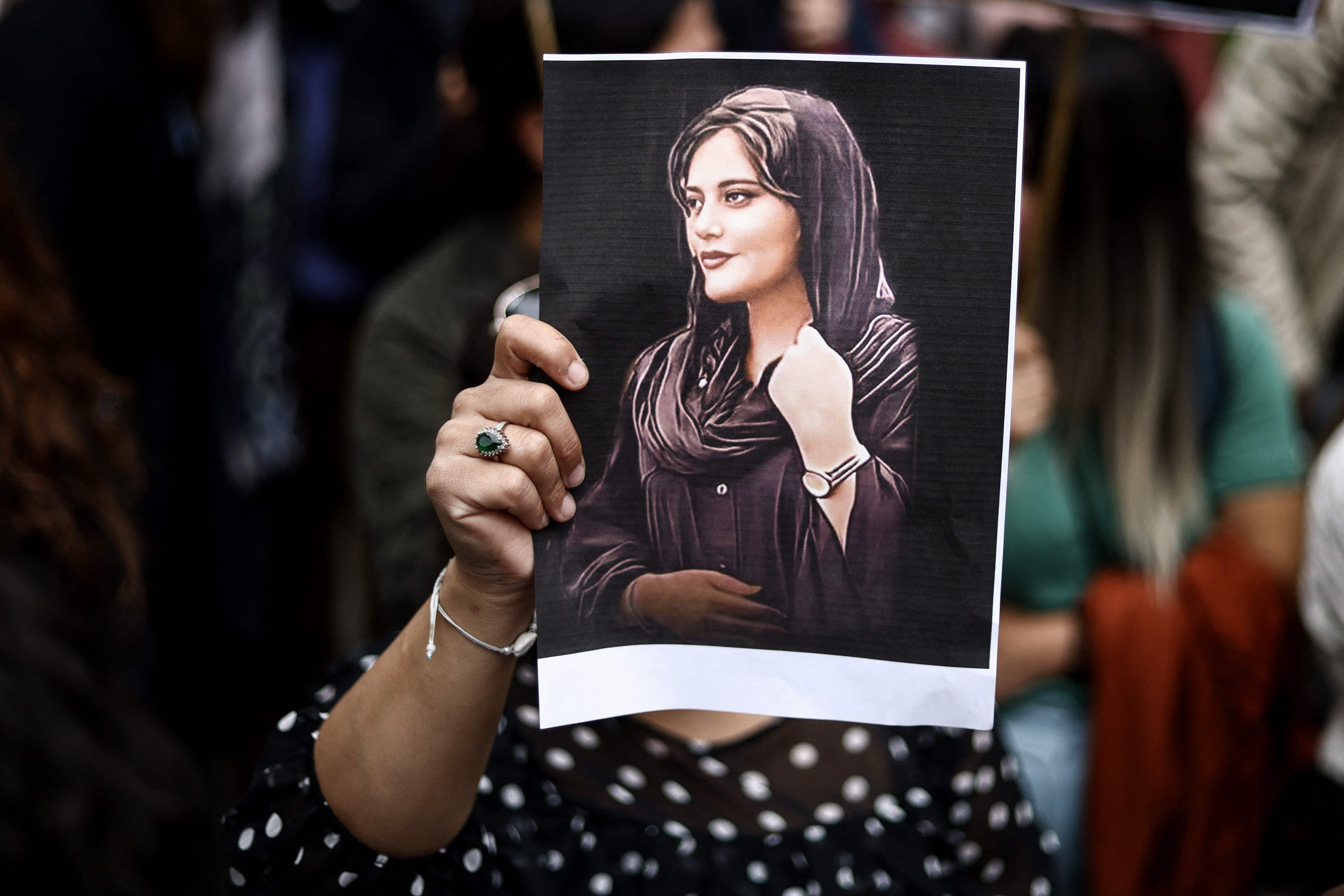Something extraordinary is happening in Iran
Speaking out against Mahsa Amini’s death and the vast system that enabled it has become a matter of honour and pride, and even national identity, writes Borzou Daragahi


One of the most poignant videos that emerged from Iran over the last nine days or so of political violence and fiery clashes between protesters and armed regime militiamen did not come from the streets of Tehran or Sanandaj – but from a prison in Saravan, in Iran’s remote southeast.
In the short clip, Salimullah Hossein-Bor, an ethnic Baluch activist and Iran-Iraq war veteran in prison on political charges, offers his support for the spontaneous nationwide outbreak of protests over the death of Mahsa Amini, also known by her Kurdish first name Jina.
The 22-year-old ethnic Kurdish woman mysteriously fell into a coma and died after she was detained by the morality police. At least 35 people have died in the unrest.
“I can’t protest for our Kurdish sister because I am in prison,” says Hossein-Bor, who was arrested last year for posting anti-regime material on social media and for allegedly taking part in 2019 protests that spread across rural Iran. “But as an act of protest, I will shave off my hair.”
He then takes a clipper and shaves off all his hair, a humble gesture of solidarity with the women who have been taking off their mandatory hijabs and cutting off their hair in public acts of defiance. “We are one nation,” he says. “And we need to support each other.”
Something extraordinary is happening in Iran, a moment of political and social evolution that transcends the protests themselves and may have a profound impact on Iranian society and politics for years to come.
It is an outpouring of unity across the country’s gender ethnic, regional, and class divides. All are coming together in support of women’s rights, as well as the basic right of any human being to live in peace and dignity, something that has proved all but impossible under the rule of the Islamic Republic.
For decades, Iran’s clerical regime has denied people their basic rights, and the mandatory hijab is just the most visible manifestation of its systemic misogyny and disregard for human dignity.
It’s not just that black-clad women in all-covering chadors and uniformed sentries are posted at key intersections and public spaces such as park entrances to harass women and sometimes men for the way they choose to dress. It’s that signs, posters and billboards screeching about the importance and necessity of the hijab pollute the entire country: in schools, in offices, and even in the little cafes where Iranians go to relax. It’s that self-anointed morality enforcers – including clerics who have long had a reputation for sexual deviancy – feel they have the right to chastise women and girls for failing to abide by their standards in public.
That is why President Ebrahim Raisi’s promise to investigate the death of Amini and find those responsible for her death not only fell on deaf ears, but actually may have made matters worse. Almost every Iranian knows that an investigation would mean little. In fact, tossing a cop or two and their commander under the bus would only serve to legitimise the daily harassment of ordinary people, the empty sloganeering, and the enforcement of Islamic dress codes. “You see?” the regime would say. “The problem is not the morality police, or mandatory hijab. It’s these two or three bad apples.”
The reaction to Amini’s death was immediate and spread like wildfire. Denied any recourse through a political system, judiciary and media landscape thoroughly monopolised by Islamist loyalists to Supreme Leader Ali Khamenei, Iranians literally had no choice but to go into the streets and protest.
Speaking out against Amini’s death and the vast system that enabled it became a matter of honour and pride, and even national identity. As one scholar put it, what was at stake was the survival of Iran as a people, as opposed to mere vassals of a totalitarian state. Iranians took over squares and streets, and confronted cops and thuggish regime paramilitary enforcers armed with teargas, batons and assault rifles.
Protests are continuing, but in addition to escalating violence, the regime has drastically curtailed communications, making any effort of building a political movement out of an amorphous political movement an enormous challenge. Typically, protests against authoritarian regimes prompt cracks within the elite that lead to political change, or even collapse. But the regime in Tehran has thoroughly purged its ranks of all but the most obedient supplicants to Khamenei and the Islamic system.
To keep up to speed with all the latest opinions and comment, sign up to our free weekly Voices Dispatches newsletter by clicking here
Most analysts in Iran and Western intelligence services, even those who passionately sympathise with the protesters, have assessed that the unrest will likely subside for now.
But protesters on the streets as well as those forced to the sidelines, such as Hossein Bar who tried to rise to the occasion, can still claim a moral victory for having pushed Iran’s political evolution.
Iran’s struggle against autocracy is an epic tale that stretches back 117 years to the time of the constitutional revolution against the then monarch. Their path toward democratic change has moved in fits and starts over the decades, as merchants, mullahs, monarchists, military officers, minorities and the middle classes have jostled against each other or teamed up against the others. There has been progress followed by failures – two steps forward, followed by stumbles backwards.
Whether it succeeds in bringing about change, the September 2022 popular uprising that followed Amini’s death and the way it drew Iranians of all demographics together will surely be enshrined as a proud moment in a nation’s history and democratic path.






Join our commenting forum
Join thought-provoking conversations, follow other Independent readers and see their replies
Comments